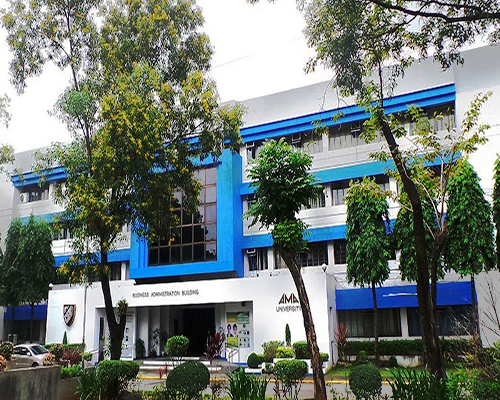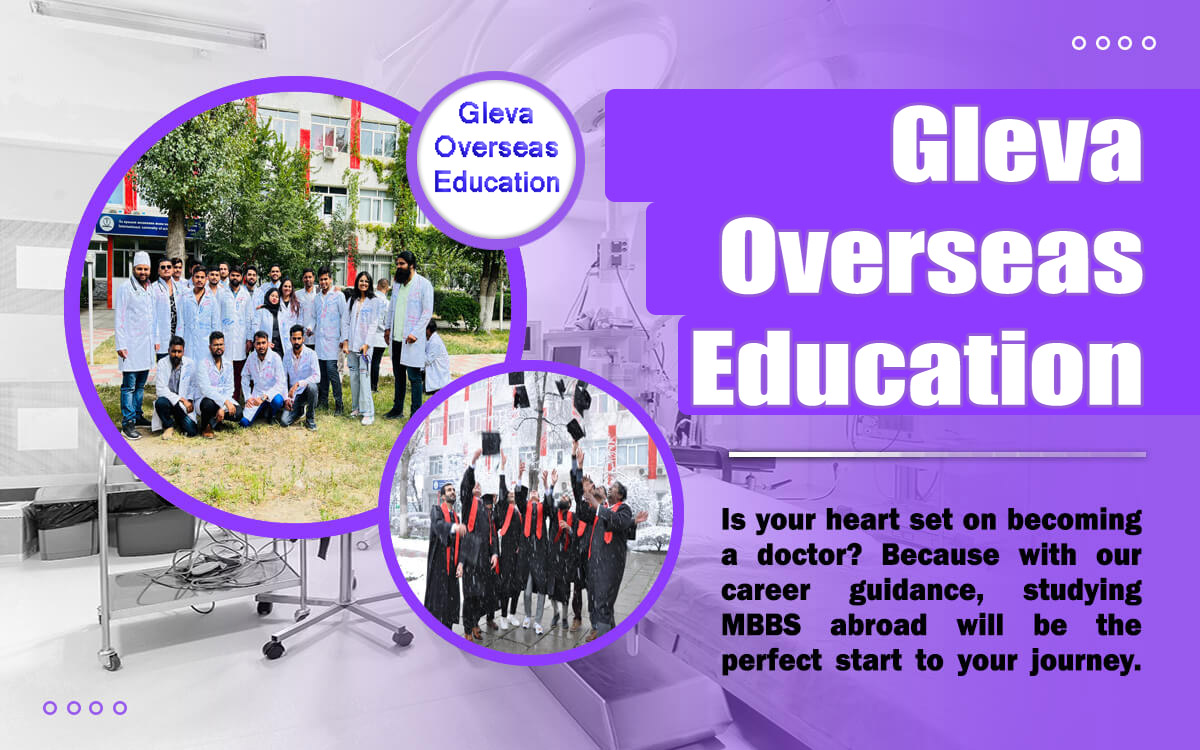
Recognized by NMC (NATIONAL MEDICAL COMMISSION)
Recognized by USMLE, CHED, FAIMER, MBC
WHO approved
The Ama School of Medicine (ASM) in Batumi, Philippines, is a renowned medical institution that offers various medical programs, including Medicine, Dentistry, and Pharmacy. Recognized by the World Health Organization (WHO), the Medical Council of India (MCI), and other international medical organizations, it is a preferred choice for Indian students aspiring to study MBBS abroad. ASM provides a 6-year MBBS program taught in English, with a strong focus on practical training. Students benefit from state-of-the-art facilities, including well-equipped laboratories and a teaching hospital, facilitating hands-on experience in patient care.
For Indian students seeking admission to ASM, Gleva Overseas Education Pvt. Ltd. (GOEPL) offers expert assistance. GOEPL specializes in guiding students through the application process for medical universities abroad. Their experienced counselors provide comprehensive support, from program selection to securing funding for studies. With its reputable medical programs and guidance from GOEPL, ASM presents an excellent opportunity for Indian students pursuing a career in medicine(MBBS).
AMA School of Medicine is a prestigious educational institution situated in Makati City, Philippines. Established in 2008, it is affiliated with the esteemed AMA Education System, which comprises a network of educational institutions across the Philippines. The school is renowned for its exceptional four-year Doctor of Medicine program, duly recognized by both the Philippine Commission on Higher Education (CHED) and the World Health Organization (WHO).
Dedicated to delivering high-quality medical education, AMA School of Medicine strives to produce globally competitive healthcare professionals. Its primary goal is to nurture capable and compassionate medical practitioners who will make significant contributions to the field of healthcare.
The curriculum at AMA School of Medicine is meticulously crafted to provide students with a robust foundation in the fundamental medical sciences, as well as the clinical skills necessary for effective diagnosis and patient treatment. The program consists of two distinct parts: Basic Sciences and Clinical Rotations.
During the Basic Sciences phase, students delve into comprehensive theoretical knowledge in subjects such as anatomy, physiology, pharmacology, and pathology. This phase equips them with a profound understanding of the human body and its intricate workings.
Subsequently, students progress to the Clinical Rotations phase, where they gain hands-on experience by working directly with patients in various medical settings. This immersive training allows them to apply their theoretical knowledge in real-world scenarios under the guidance of experienced healthcare professionals.
In conclusion, AMA School of Medicine stands as a premier institution dedicated to providing world-class medical education. With its well-structured curriculum and commitment to producing competent and compassionate healthcare practitioners, it plays a pivotal role in shaping the future of the healthcare industry.
The academic program at AMA School of Medicine is comprehensive and designed to provide students with a well-rounded education in the field of medicine. During the Basic Sciences segment, students engage in coursework covering essential subjects such as anatomy, physiology, biochemistry, microbiology, pharmacology, and pathology. These courses are complemented by laboratory sessions and dissections, which enable students to gain practical experience and a deeper understanding of the human body.
In the Clinical Rotations segment, students undergo training in various medical settings, including hospitals, clinics, and community health centers. They rotate through different specialties, such as internal medicine, surgery, pediatrics, obstetrics and gynecology, psychiatry, and more. This hands-on experience allows students to apply their theoretical knowledge, develop clinical skills, and work closely with experienced medical professionals.
The faculty members at AMA School of Medicine are highly qualified experts in their respective fields. They are dedicated to providing students with quality education and mentorship. The faculty employs a range of teaching methods to ensure students receive a comprehensive and well-rounded education. The school is equipped with modern facilities, including state-of-the-art classrooms, laboratories, and simulation rooms, providing students with a conducive learning environment.
AMA School of Medicine also places a strong emphasis on research and innovation in the medical field. The school has established partnerships with local and international institutions to facilitate research collaborations and exchange programs. Students are encouraged to participate in research projects, and the school provides them with necessary resources and support.
Additionally, AMA School of Medicine is committed to community service. Students are required to engage in various outreach programs that provide medical services to underserved communities. This not only allows students to gain practical experience but also instills in them a sense of social responsibility and the importance of giving back to society.
AMA School of Medicine in the Philippines is known for its excellent facilities and infrastructure that contribute to a conducive learning environment for students. Here are some highlights of the school's facilities:
Lecture Halls: The school boasts well-designed and spacious lecture halls equipped with modern audiovisual technology. These halls are conducive to interactive learning, providing students with a comfortable and engaging atmosphere during lectures and discussions.
Anatomy Laboratory: AMA School of Medicine has a state-of-the-art anatomy laboratory where students can gain hands-on experience with human cadavers. This facility allows students to study the intricacies of the human body and develop a comprehensive understanding of anatomical structures.
Simulation Center: The school houses a simulation center that replicates real-life medical scenarios. Equipped with advanced simulation mannequins and equipment, this center enables students to practice clinical skills, decision-making, and teamwork in a controlled and safe environment.
Skills Laboratory: The skills laboratory is dedicated to enhancing students' clinical competencies. It is equipped with medical instruments, models, and simulators that allow students to develop and refine their procedural skills under the guidance of experienced faculty members.
Library and E-Learning Resources: AMA School of Medicine provides a well-stocked library with a wide range of medical textbooks, reference materials, and online databases. Additionally, the school offers e-learning resources, enabling students to access digital content, lecture recordings, and interactive learning materials.
Research Facilities: The school emphasizes research and innovation and provides dedicated research facilities for faculty and students. These facilities include laboratories, research equipment, and collaborative spaces where individuals can pursue scientific inquiry and contribute to medical knowledge.
Student Support Services: AMA School of Medicine offers various support services to ensure the well-being and success of its students. These include counseling services, student organizations, career guidance, and academic support programs.
The commitment of AMA School of Medicine to providing excellent facilities and infrastructure is evident in its dedication to delivering a high-quality medical education. By offering modern learning spaces and resources, the school prepares students to become competent and compassionate healthcare professionals.

Studying at the Ama School of Medicine, Philippines, offers students an excellent opportunity to receive quality medical education at an affordable cost. The fees for Ama School of Medicine vary depending on the program, but overall, studying medicine in the Philippines is known to be more affordable compared to many other countries. With a six-year duration, students gain the necessary knowledge, skills, and practical experience to become competent and successful medical professionals. The medical colleges in the Philippines provide high-quality education, making it an attractive destination for students from around the world seeking affordable yet excellent medical education.
The MBBS program at the Ama School of Medicine in the Philippines has a duration of six years. This comprehensive program is designed to provide students with a well-rounded education in medicine, ensuring they acquire the necessary knowledge, skills, and clinical experience to become competent doctors.
During the first five years of the program, students engage in classroom lectures, laboratory work, and practical training in various medical disciplines. They learn about subjects such as anatomy, physiology, biochemistry, pharmacology, pathology, and more. This foundational knowledge forms the basis of their medical education.
In the final year, students undergo in a hospital or medical center. This period allows them to apply their theoretical knowledge in real clinical settings, gaining practical experience in diagnosing and treating patients, conducting procedures, and working as part of a healthcare team. The internship is a crucial phase that bridges the gap between classroom learning and actual medical practice.
Upon successful completion of the six-year MBBS program, students are awarded their medical degree. This degree is recognized by international medical councils and associations, enabling graduates to pursue medical careers not only in the Philippines but also in other countries around the world.
The six-year duration of the MBBS program at the Ama School of Medicine allows students to acquire a comprehensive understanding of the medical field, develop their clinical skills, and prepare for a successful career in medicine.

For medical students studying in the Philippines, the availability of Indian food in hostel mess facilities is an important aspect of their student life. Recognizing the diverse culinary preferences of international students, including those from India, the hostel mess strives to cater to their dietary needs.
The mess facilities in the hostels typically offer a wide range of Indian dishes to ensure that students can enjoy familiar and comforting meals. These dishes may include popular Indian staples such as roti, rice, dal, curries, and vegetarian options. The mess staff takes great care to prepare these dishes with authentic flavors and spices, providing students with a taste of home away from home.
Furthermore, sharing Indian meals with fellow students from the same cultural background or even with international friends promotes social interaction and creates a sense of community among the students. It offers a unique opportunity for cultural exchange and bonding over food, fostering friendships and a sense of belonging.
In conclusion, the availability of Indian food in hostel mess facilities is a valuable aspect of the student life of medical students in the Philippines. It ensures that students can savor the flavors of their homeland, promotes their well-being, and fosters a sense of belonging and camaraderie among the diverse student population.

Stay ahead of the curve on your MBBS admission abroad! Sign up for our expert medical consultancy updates and receive the latest news and advice on top international universities, application procedures, scholarships, and more. Don't miss your chance to make become a Doctor a reality.